
The Original Dixieland Jass Band (ODJB) was a Dixieland jazz band that made the first jazz recordings in early 1917. Their "Livery Stable Blues" became the first jazz record ever issued. The group composed and recorded many jazz standards, the most famous being "Tiger Rag". In late 1917, the spelling of the band's name was changed to Original Dixieland Jazz Band.

Joseph Russel Robinson was an American ragtime, dixieland, and blues pianist and composer. He was a member of the Original Dixieland Jass Band.
Jazz standards are musical compositions that are an important part of the musical repertoire of jazz musicians, in that they are widely known, performed, and recorded by jazz musicians, and widely known by listeners. There is no definitive list of jazz standards, and the list of songs deemed to be standards changes over time. Songs included in major fake book publications and jazz reference works offer a rough guide to which songs are considered standards.

My Kind of Broadway is a 1965 studio album by Frank Sinatra. It is a collection of songs from various musicals, pieced together from various recording sessions over the previous four years. The album features songs from nine arrangers and composers, the most ever on a single Sinatra album. While the title of the album is "My Kind of Broadway", both the Gershwin songs on the album "They Can't Take That Away From Me" and "Nice Work If You Can Get It" were written by George and Ira Gershwin for films and not for Broadway musicals.
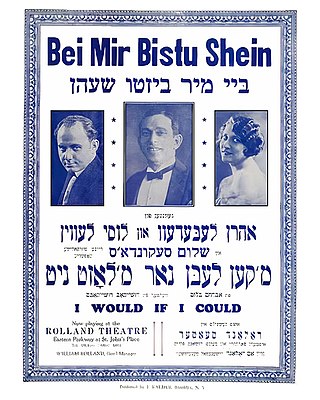
"Bei Mir Bistu Shein" is a popular Yiddish song written by lyricist Jacob Jacobs and composer Sholom Secunda for a 1932 Yiddish language comedy musical, I Would If I Could, which closed after one season at the Parkway Theatre in Brooklyn, New York City. The score for the song transcribed the Yiddish title as "Bay Mir Bistu Sheyn". The original Yiddish version of the song is a dialogue between two lovers. Five years after its 1932 composition, English lyrics were written for the tune by Sammy Cahn and Saul Chaplin, and the English version of the song became a worldwide hit when recorded by The Andrews Sisters under a Germanized spelling of the title, "Bei mir bist du schön", in November 1937.

Ella and Basie! is a 1963 studio album by Ella Fitzgerald, accompanied by Count Basie and his orchestra, with arrangements by Quincy Jones and Benny Carter. It was later reissued with slightly different cover art as On the Sunny Side of the Street.

Songs from Pete Kelly's Blues is an album by jazz singer Peggy Lee that contains songs from the film Pete Kelly's Blues (1955). Lee starred in the film and re-recorded some of the songs for this album. This album should not be confused with the soundtrack. Lee was nominated for Best Supporting Actress at the Academy Awards for her portrayal of a troubled singer. Given that the film occurs in the 1920s, the album is a combination of Dixieland and 1950s swing with help from jazz singer Ella Fitzgerald.
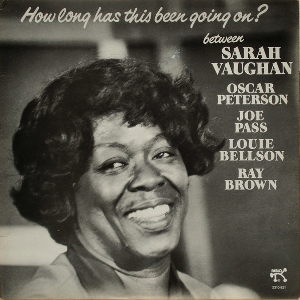
How Long Has This Been Going On? is a 1978 studio album by Sarah Vaughan, accompanied by a quartet led by Oscar Peterson.

The Paris Concert is a 1978 live album by Oscar Peterson accompanied by bassist Niels-Henning Ørsted Pedersen and guitarist Joe Pass.
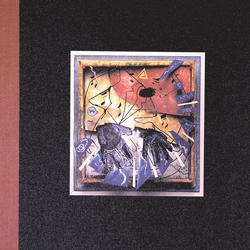
The Complete Bud Powell on Verve is a five-disc box set, released on September 27, 1994, by Verve Records, containing all of jazz pianist Bud Powell's recordings as leader for producer Norman Granz.

Old Friends is a 1992 jazz live album by pianist André Previn.

Cool Christy is a 2002 double-CD compilation of recordings by jazz vocalist June Christy from 1945 to 1951.

Ramsey Lewis and his Gentle-men of Swing is the debut album by American jazz pianist Ramsey Lewis, recorded and released on the Argo label in 1956.

The Ramsey Lewis Trio in Chicago is a live album by Ramsey Lewis Trio, recorded in 1960 and released on the Argo label.
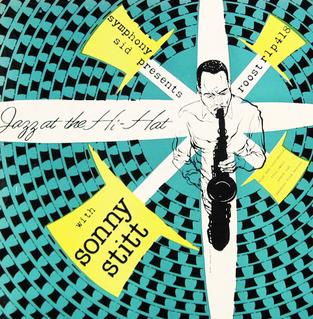
Jazz at the Hi-Hat is a live album by saxophonist Sonny Stitt recorded in Boston in 1954 and originally released on the Roost label as a four track 10 inch LP. The original album has been expanded with additional material and released on CD in two volumes.
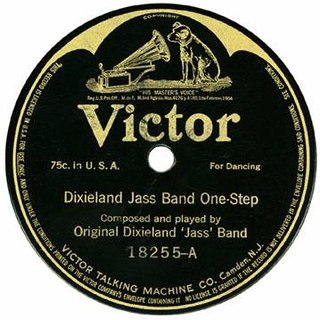
"Dixieland Jazz Band One-Step" also known as "Dixie Jass Band One-Step" and "Original Dixieland One-Step" is a 1917 jazz composition by the Original Dixieland Jass Band released as an instrumental on a 78rpm record, issued by the Victor Talking Machine Company. The song is a jazz milestone as the first commercially released "jass" or jazz song.
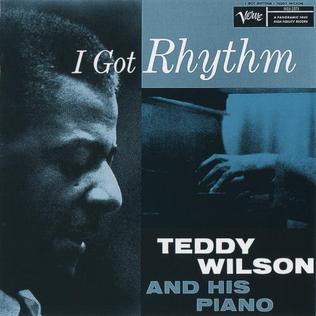
I Got Rhythm is a studio album by American jazz pianist Teddy Wilson featuring performances recorded in 1956 for the Verve label.

The Teddy Wilson Trio & Gerry Mulligan Quartet with Bob Brookmeyer at Newport is a live album by Teddy Wilson's Trio and Gerry Mulligan's Quartet recorded at the Newport Jazz Festival in 1957 and released on the Verve label.
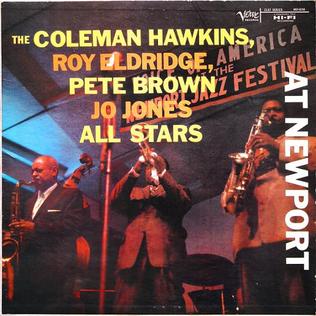
The Coleman Hawkins, Roy Eldridge, Pete Brown, Jo Jones All Stars at Newport is a live album by Coleman Hawkins's All Stars with Roy Eldridge, Pete Brown and Jo Jones recorded at the Newport Jazz Festival in 1957 and released on the Verve label.


















